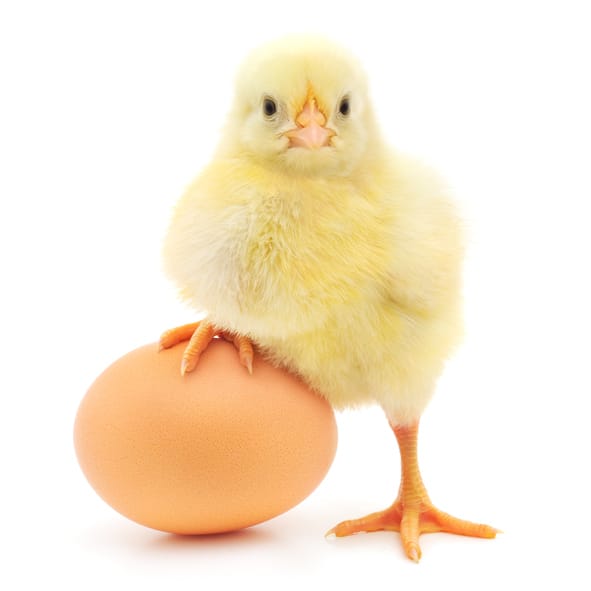German technology aims to end horror practice of chick-culling
The controversial practice of male chick culling – which involves millions of live baby chickens being tossed into a grinder or asphyxiated – might soon be a thing of the past with the development of new German technology.


By PAUL IONESCU
The controversial practice of male chick culling – which involves millions of live baby chickens being tossed into a grinder or asphyxiated – might soon be a thing of the past.
German scientists have developed a technology that allows the the sexing of unhatched eggs.
Australian farms produced over five billion chicken eggs in the past year, while the average person consumes 221 eggs per year, according to the Australian Egg Corporation Limited.
Dr Thomas Bartels at the University of Leipzig confirmed the new technology made it possible to determine the sex of unhatched eggs at nine days.

The technology is being refined to classify eggs as early as three days into their development. The sex is determined by an automated sorting machine that drills a microscopic hole into an eggshell, analyses the fluids and determines the sex of the embryo.
The technology simultaneously addresses the moral dilemma of killing vast numbers of day-old chicks, while providing eggs for feed or industry.
Traditionally, when chicks are hatched they are sexed and female chicks are raised to become egg-laying hens, while male chicks are killed by the billions as they are of little value.
Leipzig University said in a media release that there was no justification for chick-culling once this technology was adopted. The automatic sexing machine is expected to be commercialised by early 2017.

The ABC recently reported similar research into this field by CSIRO in Australia, however the method relies on genetic modification of the chickens and has met heavy resistance by anti-GMO groups.
Australian Egg Corporation spokesman James Kellaway said he was open to the idea.

“We recognise this is a very significant issue for the egg industry – the last thing we want to be doing is killing day-old chicks,” Mr Kellaway said.
“It will also assist in minimising cost because what we won’t have to do as an industry is kill half of what we hatch.”
Australian Egg Farmer of the Year runner up Madelaine Scott, who produces organic and free range eggs at Hollyburton Park farm in the Macedon Ranges, said this technology might change consumers' beliefs about buying eggs.
“Instead of feeling slightly guilty every time they buy eggs, they will probably feel no guilt,” Ms Scott said. “The demand for eggs might go up.”





